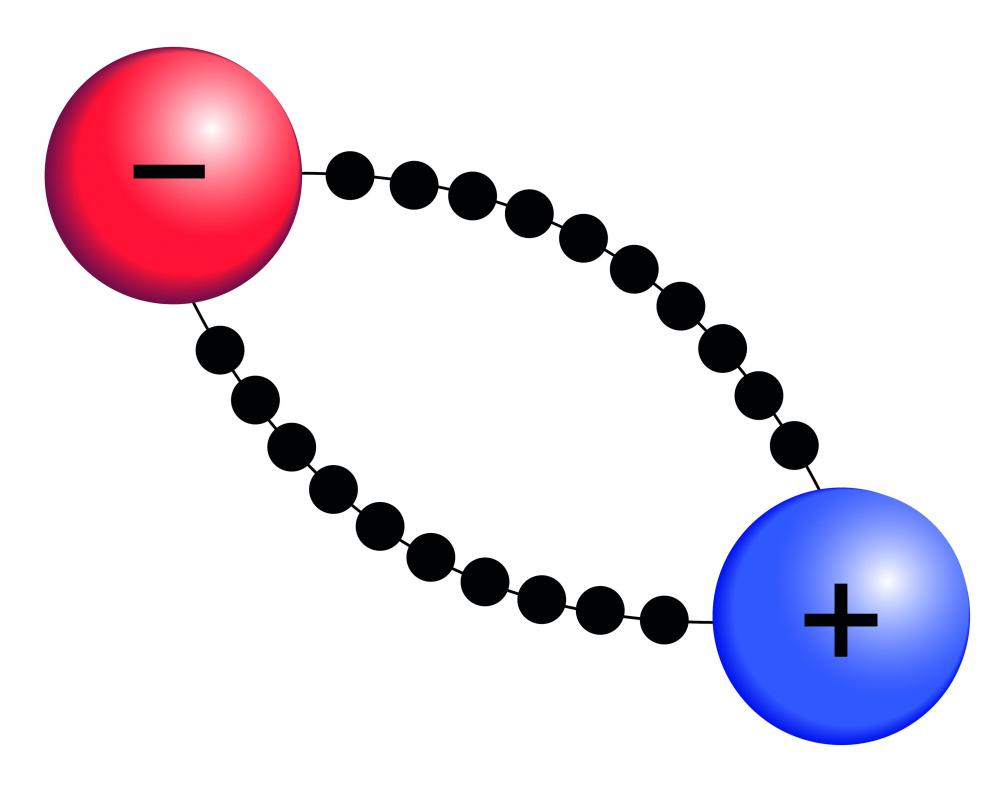At WiseGEEK, we're committed to delivering accurate, trustworthy information. Our expert-authored content is rigorously fact-checked and sourced from credible authorities. Discover how we uphold the highest standards in providing you with reliable knowledge.
What is an Alkylating Agent?
An alkylating agent is any chemical substance that will add an alkyl group to another molecule in the chemical reaction known as alkylation. An alkyl group is basically a chain of CH2 units of any length capped with a terminal hydrogen atom, so an alkylation reaction is simply the addition of an alkyl chain to another molecule. The simplest alkyl group is called the methyl group, -CH3, and alkylation with a methyl group is known as methylation.
Alkylation reactions are an important part of organic synthesis and alkylating agents are widely used in creating medicines and industrial specialty chemicals. Any alkylating agent is a potential hazard, however, because they are quite capable of alkylating DNA or other chemicals in the human body, thereby changing their nature and upsetting a person's biochemistry. Alkylating agents are potent carcinogens and must be handled with care.

The tendency of an alkylating agent to modify biochemicals is made use of in the class of anti-cancer drugs known as alkylating antineoplastic agents. In these drugs, an alkylating agent is used to add an alkyl group to the cells' DNA, and thereby render it incapable of reproduction. Since cancer cells grow faster than normal cells, they die off more quickly, reducing the number of cancerous cells. Unfortunately, the alkylating antineoplastic agent doesn't discriminate between healthy cells and cancerous ones and alkylates the DNA of all cells indiscriminately. Fast-growing cells, such as in the gastrointestinal tract, bone marrow, and ovaries, are especially effected and will likely be damaged, giving these drugs significant and unpleasant side effects.

Chemically, an alkylating agent may be considered to have two parts: the alkyl group itself, and a substituent known as the leaving group, which will depart during the alkylation reaction and leave behind an active alkyl ion or radical. The leaving group might take an electron from the alkyl portion, creating an alkyl group with a positive charge, or alkyl carbocation. Positively charged alkyl groups are electrophilic, meaning they are attracted to negative charges or electron-rich atoms on the target molecule.
Conversely, the leaving group might donate an electron to the alkyl portion, producing a negatively charged alkyl species, or carbanion. Negatively charged alkyl groups are nucleophilic, or attracted to positive charges and electron-poor atoms on the substrate.
The nature of the alkylating agent thus allows a certain amount of control over just where a target molecule may be be alkylated. Electrophilic or positively-charged alkyl groups are provided by such compounds as dialkyl sulfate and the alkyl halides. Nucleophilic or negatively charged alkyl ions result when metal alkyls and organometallics are used.
A third possibility is free-radical alkylation, in which the active alkyl group has its normal compliment of electrons, but one of them is unpaired and available for chemical bonding. Free radical alkylation is widely used in industry. Due to its non-specificity, is not often used in designed synthesis.
AS FEATURED ON:
AS FEATURED ON:












Discuss this Article
Post your comments